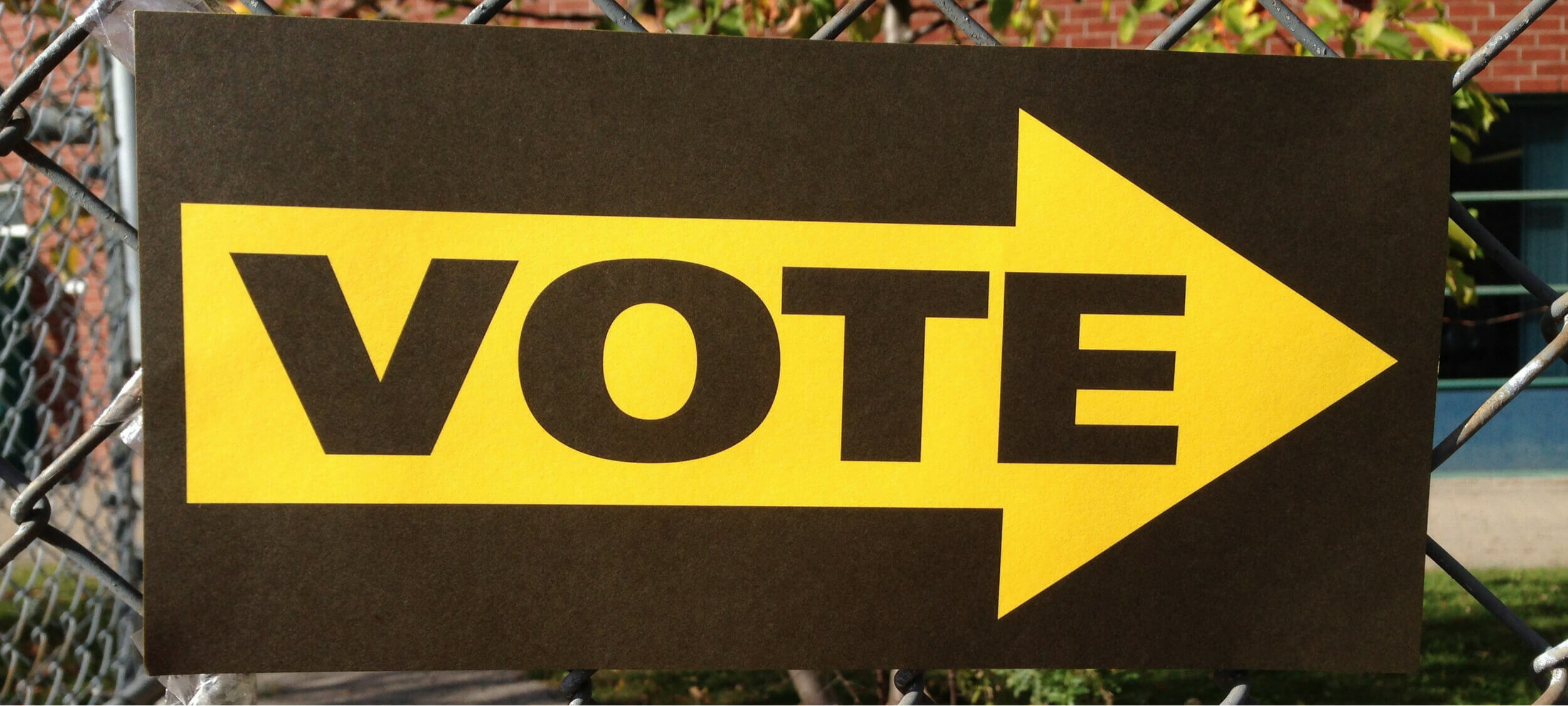6 Things you might like to know about the rich

6 Things you might like to know about the rich
Opinion + AnalysisBusiness + Leadership
BY The Ethics Centre ethics 29 NOV 2018
In Australia, where we like to cut our tall poppies down, wealthy people come with an unenviable reputation.
Unless you happen to be reading the business pages, money and power will attract sneering. Otherwise, the lionising coverage of those with outrageous success seems ample reward for their riches.
A multitude of psychological studies conclude rich people are more unethical and selfish than those who are less fortunate. However, one question remains mostly unanswered; what came first; the bad character or the money?
Here, we take a quick look at what research tells us about the collision of money and ethics:
1. Fancy car, poor driving
People driving expensive cars are four times more likely to ignore right of way laws on the road than those who drive cheap cars.
Dacher Keltner, a psychologist at the University of California at Berkeley
and his then-graduate student, Paul Piff, tracked the model of every car that cut off others.
“It told us that there’s something about wealth and privilege that makes you feel like you’re above the law, which allows you to treat others like they don’t exist,” Keltner told the Washington Post.
In another experiment, half of the luxury car drivers ignored a pedestrian on a crossing – many even after making eye contact. However, all the cheapest cars stopped.
2. They cheat more on their taxes
Taxpayers whose true income was between $US500,000 and $1 million a year understated their adjusted gross incomes by 21 per cent in 2001, compared to an eight percent underreporting rate for those earning $50,000 to $100,000 and even lower rates for those earning less than that.
According to research, wealthier people were more likely to cheat because it was easier for them to hide sources of income from self-employment, rents, capital gains and partnerships.
3. Less empathetic
Observations that rich people tend to be less generous than the poor may be influenced by the amount of time we spend looking at each other.
By analysing what people look at as they walk down a street (wearing Google Glasses), psychologists at the University of California, Berkeley,
Pia Dietze and Eric Knowles, discovered that social class did not affect how many times people looked at another person – but it did determine how much time they spend looking.
Participants self-nominating as higher in social class spent less time looking at other people.
Dacher Keltner says people in lower socioeconomic classes tend to be more vigilant because they “live lives defined by threat”.
4. Less generous
Middle-class Americans give a far bigger share of their discretionary income to charities than the rich. If the rich live in wealthy neighbourhoods, they give an even smaller share of their income than wealthy people in economically-diverse neighbourhoods.
“Wealth seems to buffer people from attending to the needs of others,” Paul Piff told the New York Times.
5. Cashed-up and sad = bad
People most likely to approve of unethical behaviour are those with a low level of happiness, but a high level of income, according to a survey of 27,672 professionals.
Conversely, the most disapproving of unethical behaviour were those with high income and life satisfaction, according to professor of management and organisations at the Kellogg School, the late Keith Murnighan, and Long Wang of the City University of Hong Kong.
“People who are exuberant and upbeat about life, and happen to have high income, are likely to be more trustworthy,” Murnighan told his university’s Kellogg Insight publication.
“An unhappy rich person might feel bad because of their own unethical behaviour, but it might be that very behaviour that got them rich in the first place.
“Having a comfortable amount of money might allow enough psychological ‘room’ to ethically consider the needs and perspectives of other people, which may then lead to feelings of well-being.”
6. Stereotypes are self-fulfilling
Negative stereotypes of rich people are all-pervasive. According to Adam Waytz, an Associate Professor of Management and Organisations at Northwestern University’s Kellogg School of Management, studies show that the more profitable a company, the more people linked it to social harm.
“People come to confirm the behaviours that are expected of them (we live up to and down to others’ stereotypes of us), and if rich people and business folks are assumed to behave with the same scruples as Bernie Madoff, these views will likely elicit unethical behaviour from them,” warns Waytz in a blog in the Scientific American.

This article was originally written for The Ethics Alliance. Find out more about this corporate membership program. Already a member? Log in to the membership portal for more content and tools here.
Ethics in your inbox.
Get the latest inspiration, intelligence, events & more.
By signing up you agree to our privacy policy
You might be interested in…
Big thinker
Society + Culture, Business + Leadership
Big Thinker: Ayn Rand
Opinion + Analysis
Business + Leadership
Our economy needs Australians to trust more. How should we do it?
Explainer
Business + Leadership, Politics + Human Rights
Ethics Explainer: Universal Basic Income
Opinion + Analysis
Business + Leadership
New framework for trust and legitimacy
BY The Ethics Centre
The Ethics Centre is a not-for-profit organisation developing innovative programs, services and experiences, designed to bring ethics to the centre of professional and personal life.
BY ethics
Leaders, be the change you want to see.

Leaders, be the change you want to see.
Opinion + AnalysisBusiness + Leadership
BY Gordon Cairns ethics 29 NOV 2018
Chairman of Woolworths and Origin Energy, Gordon Cairns, says he cannot remember a time in his career when business leaders were less respected.
“The theme coming out of the [Banking] Royal Commission – and I am on the board of [Macquarie] bank – is one of dishonesty, where driving profit is actually seen as the polar opposite to serving the customer … and where more regulation now is seen as the antidote to poor leadership,” Cairns told a recent Sydney gathering.
“It is worse than the political arena. I’ve worked in three continents – the UK, America and in Australia –and I actually fear for all of them.”
He said the situation had reached a nadir when the excuse for imposing a tax on the banks is because “everyone hates them” and the reason for pricing regulation in the energy sector is because “the retailers are gouging their customers”.
Cairns has a reputation as a plain-speaking Scotsman, frequently sharing his own leadership story to illustrate how authentic, self-aware leaders can transform whole organisations.
He was appointed CEO of the beverage company Lion Nathan in 1996 and engaged leadership consultancy Human Synergistics to conduct 360-degree reviews of staff. These reviews laid out how individuals were viewed by those they reported to, worked alongside and led.
His own results were abysmal – flooded with aggressive and defensive character traits (coded red in the results, as opposed to the more productive and affiliative blue).
Speaking in November at a Sydney event, hosted by coaching company Stephenson Mansell Group, Cairns spoke about what he has learned about leadership.
First, he says, the best organisations recognise that they are a social community of people who join voluntarily for a shared moral purpose. “They are neither an army, nor a machine. And our job as leaders is to inspire them with that noble purpose.”
Second, leaders get results and the “how” you get there is as important as the “what” you achieve.
“And to this point, leadership is mathematical. I remember having a conversation with Kevin Rudd and he said ‘What is the most important ingredient in leadership?’ And I said ‘Prime Minister, you have to have followers’. He said: ‘What do you mean?’
“If you are not getting results, people will not follow you. And, if you have no followers, then you have no-one to lead.”
Cairns said his third lesson was that leaders are prepared to undergo a profound change in themselves. He saw the necessity for that when he received his own 360-degree review at Lion Nathan, which he left in 2004.
“So this is what is known as an ‘Aha moment’. I would actually describe it as an ‘Oh shit moment’.
“So, I go into the office the next day and I go to the HR director [Bob Barbour] and say, ‘Well you are going to have to be my coach. When I do something well, can you praise me in public? When I do something bad, could you take me aside and quietly just tell me. And we are going to have that trusting relationship’.
“The next thing I did was publish my 360-degree [report] to the 7,000 people in the organisation. This was somewhat foolhardy because, as I go around the organisation to talk to people, they would always have their 360-degree on their credenza and I would say ‘Oh, is that your 360-degree? That looks very good’ and they would say ‘Nowhere as bad as yours’.”
Cairns then asked around for an executive coach and was recommended, Tony Grant,
Professor of Coaching Psychology at the University of Sydney.
“So I called Tony up and said ‘Tony, I am a basket case and I need help’,” explains Cairns.
Grant told him to come at 5.30 on Wednesday.
“I said, ‘Tony, you don’t understand. I am very important. My diary is full, I cannot possibly get there on Wednesday’.
“He said, ‘That’s okay. Don’t come’.
“I said, ‘Okay, let’s negotiate. Instead of 5.30 in the evening, let’s make it 6 o’clock’.
“He said ‘It is not in the evening, it is the morning’.
“I said ‘Tony, you don’t understand. I like to get up in the morning. I like to meditate. It is good for my soul. I like to go to the gym’.
“He said, ‘We have had this conversation. Don’t come’.”
Cairns says the point of that conversation was that if becoming a better leader was not the most important thing in Cairns’ life, why should Grant – a renowned expert – waste his time?
Every week for five years, Cairns visited Grant and the results were spectacular. By the time Cairns left Lion Nathan, the formerly underperforming company had an employee engagement score in the 90 percent range, which indicates a very high level of buy-in from motivated staff.
“Human Synergistics had never seen a transformation of a company, so fast and so dramatic ever. The total return for shareholders was in the top quartile in the world – 22 per cent over a five-year period. I can honestly say, I became a better father, a better husband, and a better leader,” says Cairns.

This article was originally written for The Ethics Alliance. Find out more about this corporate membership program. Already a member? Log in to the membership portal for more content and tools here.
Ethics in your inbox.
Get the latest inspiration, intelligence, events & more.
By signing up you agree to our privacy policy
You might be interested in…
Opinion + Analysis
Business + Leadership, Health + Wellbeing
Why ethical leadership needs to be practiced before a crisis
Opinion + Analysis
Business + Leadership, Science + Technology
Is technology destroying your workplace culture?
Opinion + Analysis
Business + Leadership
The pivot: ‘I think I’ve been offered a bribe’
Opinion + Analysis
Business + Leadership
Workplace ethics frameworks
BY Gordon Cairns
Gordon Cairns is Chairman of the Woolworths Group and Origin Energy. He is a director of Macquarie Group and Macquarie Bank (since November 2014).
BY ethics
Political aggression worsens during hung parliaments

Political aggression worsens during hung parliaments
Opinion + AnalysisBusiness + Leadership
BY The Ethics Centre ethics 27 NOV 2018
In the bear-pit of the House of Commons, the Government and Opposition benches are precisely placed two sword-lengths apart. If that doesn’t tell you about the standards of behaviour expected of our politicians, nothing will.
Former Foreign Minister and Deputy Prime Minister, Julie Bishop, says she has witnessed behaviour that would not be “tolerated in any other workplace across Australia”.
Observers from other nations have been sometimes lavish in their condemnation of the goings-on in the nation’s capital. Matthew Engel in The Financial Times judged Australia the worst of all the “crazy parliaments” he had observed in 2012.
“The only thing the MPs can do,” wrote Engel, “is overthrow their leaders, which they do with great zest, in the manner of Roman slaves celebrating Saturnalia.”
Such is the public distaste for the taunting and name-calling that parents often use Question Time conduct as an example to their children of what not to do at primary school.
Is bullying getting worse?
In recent months, the standards of behaviour became a topic for discussion once again when Liberal Party women spoke out against bullying and the lack of female representation among party MPs.
With a Party ideology that celebrates individualism, rather than collective action, photographs of Liberal women co-ordinating their wardrobes to wear “Handmaid’s Tale” red in question time in Question Time created a stir.
This uncharacteristic outspokenness about their own colleagues may have led to the impression that the traditionally-bad behaviour is getting worse. But is this really the case?
Dr Marija Taflaga is a researcher in the School of Politics & International Relations at the Australian National University and has been studying this very question.
Taflaga says, over the past 22 years, aggression levels have ebbed and flowed. Overall behaviour (while perhaps considered unacceptable elsewhere) is now less aggressive than during the minority Government of Labor’s Julia Gillard.
Incivility, measured as a “ferocity index”, rises significantly when there is more at stake, trying to pass significant legislation, or during “hung parliaments” – this does not auger well for the next six months until the next Federal election.
A change in tactics
Other factors encouraging poor behaviour are the televising of Question Time, which provides a more public platform for those who want to show dominance over the other side.
“The Australian Parliament has always been a pretty robust place,” says Taflaga, who has also worked in the Australian Parliamentary Press Gallery as a researcher at The Sydney Morning Herald and The Age.
Politicians’ behaviour may not be not much worse than usual, but what we are seeing is a change in tactics, she says.
“Both sides of politics have kind of learned to engage in a lot of trash talk … and then just pass legislation anyway.”
There has also been an increase in contrarian behaviour, with leaders “shutting” down constructive debate with “binary” responses to complex problems.
Influence of Abbott
Abbott’s skill at simplifying debate did make the parliament more aggressive, she says.
“One person is trying to open up a conversation and the other one is constantly shutting it down and that is what Tony Abbott was really good at. And he was really good at shutting it down under his terms, such as [saying] ‘Stop the boats’ or ‘Axe the tax’.
“That lessens the opportunity to have a civil discussion. It effectively increases the temperature because one side is still trying to prosecute their argument, while the other side is basically refusing to engage except on these really narrow terms. And when you simplify things down, there is no nuance and it’s actually nuance that brings in the possibility for compromise.”
While there are protocols to moderate behaviour on the floor of the house (even if it only forces withdrawals or expulsion after the event has taken place), it is difficult to grade conduct that occurs in the offices and hallways, because it is unrecorded and much of it occurs in private.
Liberal women outnumbered
Taflaga’s observations about the complaints of the Liberal Party women is that because there are so few of them, it is harder for them to change the culture.
“A woman who’s made it into politics is pretty tough. It’s a hard business to get into. It’s not like business or a law firm where there are the same kinds of rules that are enforced by a human resources department.”
Taflaga says research into female MPs in the UK finds that more than half of them say they faced gender discrimination during their selection or election.
“They thought that business was a tough environment, but they had excelled at it, but here they are in parliament and they are being treated systematically differently,” she says.
The Australian female MP complaints of bullying should be taken seriously, she says. “There’s a lot at stake for them to say those things. There are a lot of cultural and organisational pressures to not say those things – yet they are still saying it. So we should absolutely take it seriously.”
Politics not for the faint-hearted
In this, Taflaga is echoing the comments of Julie Bishop who, said: “I have seen and witnessed and experienced some appalling behaviour in parliament, the kind of behaviour that 20 years ago when I was managing partner of a law firm of 200 employees I would never have accepted”.
Bishop was commenting after MP Julia Banks cited bullying and intimidation as a factor in her retirement from politics.
“Politics is robust, the very nature of it, it’s not for the faint-hearted,” said Bishop.
“[But] when a feisty, amazing woman like Julia Banks says this environment is not for me, don’t say: ‘Toughen up, princess.’ Say: ‘Enough is enough’
Taflaga says she would like to be able to study whether a better gender balance would improve standards of behaviour and is looking for funding for this project.
Lacking the quota system that has boosted Labor’s female MPs to 46 percent, the proportion of Coalition women has slipped to around 24 per cent.
“A lot of women find the aggressiveness of parliament confronting. And we do know that women tend to find committee work, that more deliberative style, more to their taste. And, of course, there is a penalty as a female, for being seen to be very aggressive.”
What can be done?
Looking around the world, Taflaga notes that some differences help dial down the ferocity of other parliaments.
• Shorter Question Time: Most of the bad behaviour occurs in Question Time, which is held every day for one hour in sitting weeks in Australia. In the UK, Prime Minister’s Questions are just half an hour each week and the questions are known in advance, so it becomes less likely to be “gotcha!” time-wasting.
• More impartial speakers: Poor behaviour is encouraged by having partisan speakers, who are not even-handed in regulating the house.
• Longer parliamentary terms: In the UK, terms are five years, compared to three years in Australia. A longer term gives a Government more time to govern before taking up the cudgels for the next election.
• Engaging the Opposition: Find ways to allow the Opposition to make a more constructive contribution, in cross-party committees for instance, where they must work together as they do in the Senate.
• Rearrange the benches: Rather than having opposing sides two sword-lengths apart, the Scottish Parliament is arranged like a horseshoe.
Taflaga says it is worth trying to get MPs to behave. “Parliament is always a tough business and it’s always going to be tough, but that’s not an excuse to not change things”.

This article was originally written for The Ethics Alliance. Find out more about this corporate membership program. Already a member? Log in to the membership portal for more content and tools here.
Ethics in your inbox.
Get the latest inspiration, intelligence, events & more.
By signing up you agree to our privacy policy
You might be interested in…
Opinion + Analysis
Business + Leadership, Relationships
Beyond the headlines of the Westpac breaches
Opinion + Analysis
Business + Leadership
Tim Walker on finding the right leader
Opinion + Analysis
Business + Leadership
Ask the ethicist: Is it ok to tell a lie if the recipient is complicit?
Opinion + Analysis
Business + Leadership
John Elkington on business sustainability and ethics
BY The Ethics Centre
The Ethics Centre is a not-for-profit organisation developing innovative programs, services and experiences, designed to bring ethics to the centre of professional and personal life.
BY ethics
Activist CEO's. Is it any of your business?

Activist CEO’s. Is it any of your business?
Opinion + AnalysisBusiness + Leadership
BY The Ethics Centre ethics 25 NOV 2018
When people were getting shouty about the same-sex marriage issue last year, it must have seemed like a great idea for a company to support a campaign calling for constructive and respectful debate.
What could go wrong?
Answer: for a proudly Christian-owned beer company, just about everything.
The Adelaide-based Coopers Brewery was dipping its toe into the pool of corporate social activism by supporting a Bible Society video debate. In it, two Liberal Party MPs were voicing opposing pro and anti same-sex marriage views. Instead of a diplomatic hurrah, the result was a painful and embarrassing public relations belly-flop.
In less than a week of making national news, the brewery had put out two press releases; one defending its involvement and the other distancing itself. This resulted in them facing community and social media backlash and a product boycott by both customer and publican.
Social commentator and advertising writer, Jane Caro, says companies and their CEOs have every right to state a point of view, but there is a wrong and a right way to go about it.
“What they didn’t do was ‘out’ themselves as a company with strong Christian values,” she says.
“You have to own up to who you are.”
“The ethical thing to do is own up to your bias. It doesn’t mean you can’t have one [a bias], it means you own up to it.”
You may be criticised for your view, she says, but you will not be branded a hypocrite.
‘Stick to your knitting’ – Dutton
During the same heated discussions leading to the Same-Sex Marriage referendum last year, Qantas CEO Alan Joyce was publicly reprimanded for his outspokenness on the issue by former Immigration (now Home Affairs) Minister Peter Dutton, who said business leaders should “stick to their knitting”.
“Alan Joyce, the individual, is perfectly entitled to campaign for and spend his hard-earned money on any issue he sees fit, but don’t do it in the official capacity and with shareholders’ money,” said Dutton.
“And certainly don’t use an iconic brand and the might of a multi-billion-dollar business on issues best left to the judgment of individuals and elected decision-makers,”
Joyce, who also donated $1 million of his own money to the Yes campaign, has been an “out” gay man for a long time and there was no confusion about where he stood on marriage equality, says Caro.
He was also backed by the Qantas board, which had sought the views of major shareholders, staff and customers before he made his stand. His voice was also amongst another 131 large businesses who have publicly supported the marriage equality campaign.
Leaders have a social responsibility
Caro says it is part of a CEO’s job to look at the ethical basis of a company.
“You can’t go through life being a moral vacuum. You can’t go through life having no opinion. CEO’s have to have a point of view on climate change, they have to have a point of view on equal rights for LGBTQI people, for women and for people of colour,” she says.
“And, particularly, people are demanding to know what the attitudes of a company are before they got to work for them.
Research by Weber Shandwick and KRC Research backs this up. A poll of 1,021 adults in the US last year finds that the younger you are, the more likely it is that you will expect corporate leaders to speak up on social issues.
Around 47 percent of Millennials (aged around 22-37) say CEOs have a responsibility to speak up. Of their elders, 28 percent agreed with them. Younger people are also more likely to buy from a company where the CEO spoke out on an issue with which they agree.
Says Caro: “If you’re a gay person, and you’re married, you wouldn’t want to go work for a company which disapproved of that or where you had to pretend you weren’t.”
CEO’s should ‘grow a backbone’
But should CEOs speak out on topics that have little to do with their business?
American marketing professor, Gene Del Vecchio, advises CEOs to shut up, only fight when the issues have a direct impact on the business and not to pander in a shallow attempt to gain business. If CEOs decide to communicate their opinions, they should ensure they cannot be misunderstood.
They should also consider the unintended consequences of projecting their views and “grow a backbone” to resist threats, pressure groups and entreaties.
“Whether you are being threatened by activists on the left or the right, the more you yield to their demands today, the more they will demand of you tomorrow, which increases their control of your future business,” wrote Del Vecchio in the Huffington Post.
“ … if you are a CEO of a publicly held company, your fiduciary responsibility is to shareholders, many of whom are invested in your company via large mutual funds that reflect a wide swath of investors from the political spectrum. You owe it to them to make money to support their retirement, not to express your personal opinion on sensitive issues that many may not agree with.”
The rise of progressive activism
Corporate social activism is not new. CEOs have always played a role as moral standard-bearers. In 1914, industrialist Henry Ford doubled the salaries of his workers who lived “moral” lives and hired a department of 200 inspectors to ensure they were not getting drunk or neglecting their families. He also published an anti-smoking book.
In the UK, the Lever brothers built a company town, Port Sunlight, for factory workers to live in a welfare state-like utopia in the 1880s: “to socialise and Christianise business relations and get back to that close family brotherhood that existed in the good old days of hand labour”.
What has changed is that, in the past, activist CEOs tended to be socially conservative, says Caro. Today, they are more likely to be backing progressive points of view.
“So I don’t think it is possible to escape the fact that CEOs have to take a lead. They always have – it’s just that they used to be a lot more conservative.”
Often that meant actively discriminating against others depending on their lifestyle, religion or denomination (anti-Catholic prejudice was rife in the Menzies era), race or gender.
“To see CEOs actively working not to discriminate against a whole lot of people is, in my view, ethically the way it should be.”
Leaders try to maintain the centre
Activist CEOs may seem to be coming from the left, but this is generally because they are usually responding to a backlash from the “right” side of politics, says Harvard Business School Professor of Business Administration, Michael Toffel.
If they are merely taking a conservative approach of sticking to their corporate values – which commonly emphasise equality, diversity and sustainability – that pits them against those who may not support movements such as same-sex marriage, quotas for gender equality, limits on free speech to protect against hate speech, or global warming.
“If we start to see some policies from the ‘sharp left’ starting to emerge, you may see some of these same CEOs say that’s not the right way to go either,” says Toffel. “They [the CEOs] are trying to maintain the centre, but it is being perceived as leftist because they are reacting to Right-side responses”.
Toffel warns that activist CEOs may look perfectly acceptable – if you happen to agree with what they are saying.
“For those who are cheering CEO activism because they happen to agree with the politics, I think they have to be careful about wondering about whether this is really something they would endorse if the shoe were on the other foot”.
What difference does it make?
Researching CEO activism with Toffel is Duke University Business professor, Aaron Chatterji, who says corporate social activism can both boost and batter business. Outdoors company Patagonia reported a revenue surge after announcing a lawsuit against the Trump administration’s efforts to slash the size of Bears Ears national park in Utah.
However, when airline Delta cut its discounts to members of the National Rifle Association after a school mass shooting in a Florida, it was punished by US State of Georgia, which stripped proposed tax breaks.
The US-based Webber Shandwick poll shows 70 percent of respondents approve of outspokenness about job training, but far fewer wanted their corporate leaders to tackle hot-button topics such as refugees (26 percent), gun control (26 percent) and LGBTQI rights (29 percent).
Australians are less reticent. Around 36 percent support CEO outspokenness, with 32 per cent saying “it depends …”. This is almost twice as many as those who think CEOs should stay shtum.
While a minority (13 percent) said activist CEOs had an influence on government, almost half of Americans say corporate leaders who avoid contentious issues will face criticism from the media, customers and employees and 21 percent said those companies may face declining sales or boycotts.
Even though Joyce’s stance attracted some return fire, it would be hard to see there was any damage to the Qantas brand. Qantas chairman Leigh Clifford said, after the vote, that the customer net promotion score had “never been higher”.
Says Caro: “Most people have more respect for those who stand up for what they believe in, than those who don’t. And think about who Qantas employs. A very sizeable percentage of their employees are gay men”.
Perhaps, like a dog whose bark is worse than its bite, a backlash can sometimes have little real-world impact. In its 2017 annual report, Coopers admitted that its beer-and-Bible storm was “a trying time, but had little impact on trading, with beer sales between April and June being stronger than in previous years.
Image take from CEO Activism infographic by Webers and Wick
Follow The Ethics Centre on Twitter, Facebook, Instagram and LinkedIn.

This article was originally written for The Ethics Alliance. Find out more about this corporate membership program. Already a member? Log in to the membership portal for more content and tools here.
Ethics in your inbox.
Get the latest inspiration, intelligence, events & more.
By signing up you agree to our privacy policy
You might be interested in…
Opinion + Analysis
Business + Leadership
Taking the bias out of recruitment
Opinion + Analysis
Business + Leadership, Politics + Human Rights
Can philosophy help us when it comes to defining tax fairness?
Opinion + Analysis
Business + Leadership
Why businesses need to have difficult conversations
Opinion + Analysis
Business + Leadership, Politics + Human Rights
Could a virus cure our politics?
BY The Ethics Centre
The Ethics Centre is a not-for-profit organisation developing innovative programs, services and experiences, designed to bring ethics to the centre of professional and personal life.
BY ethics
Democracy is still the least-worst option we have

Democracy is still the least-worst option we have
Opinion + AnalysisBusiness + LeadershipPolitics + Human Rights
BY Gordon Young 21 SEP 2018
If the last decade of Australian politics has taught us anything it is this: democracy is a deeply flawed system.
Between the leadership spills, minority governments, ministerial scandals, legal corruption, and campaign donations, democracy is leaving more of us disillusioned and distrustful.
And that’s just in Australia.
Overseas, various ‘democratic’ governments have handed us Brexit, Russian election tampering (both domestically and abroad), the near collapse of the Euro, the Chinese Government’s Social Credit scheme, and the potentially soon-to-be-impeached Trump Presidency.
It’s not surprising that many are looking for an alternative system to run the country. Something simpler, more direct. Something efficient and easy.
Something like capitalism.
This may seem absurd on first reading – after all, how can an economic system replace the political governance of an entire nation? But capitalism is more than how we trade goods and services. It spills into a broader socio-economic theory that claims it can better represent people nationally and abroad than democracy ever could. This is known as neoliberalism.
Neoliberals argue that we don’t need to rely on the promises of unaccountable representatives to run the government. We can let competition decide. Just as a free market encourages better products, why don’t we let the free market encourage better governance?
If Bob does a better job fixing your car than Frank, employ Bob and vote for that quality as the standard. Frank either picks up his game or goes out of business. If your neighbouring electorate’s MP does a better job representing you, pay him and vote for his policy. If people value businesses that treat their employees well, those businesses will succeed and others will change their practices to compete.
Where democracy asks you to trust in the honour of your leaders, and only gives you a chance to hold them to account every few years, neoliberalism lets you exercise your choice every single time you spend your money, every single day.
This is far from fantasy thinking. It is this essential idea that drives ideas like ‘small government’, privatisation of state infrastructure, decreasing business taxes, and cutting ‘red tape’ – remove government interference from the system and leave the decisions up to the people themselves.
On paper it is the perfect system of government – a direct democracy where every citizen constantly drives policy based on what they buy and why.
Great, right? Well, only if you’re a fan of feudalism. Because that is what such a system would inevitably produce.
Consider this: within democracy, who is in control? The elected government obviously has the reigns of power during their term (to a frankly frightening degree), but how do they maintain that power?
By being elected, of course. Whether they like it or not, every three to four years they at least have to pretend they care about the needs of the people. In reality it’s hardly as simple as ‘one person, one vote’ – between campaign donations, lobby groups, ‘cash for access’, and good old-fashioned connections, some citizens will always have more power than others – but the fact remains that within democracy, the people in power still need to care about the whims of their citizens.
Now consider this: within this ideal capitalist, neoliberal, vote-with-your-dollar system, who is in control? If you express your interests in this system through your purchases, then power is dispersed based on how much you spend, right?
Who does the most spending? The people with the most money.
Here is the critical question and the sting in tail of the neoliberalism: why should the people in control of such a society, where power is determined by wealth alone, give the slightest damn about you?
Whether sincere or not, democracy requires the decision makers to court all citizens at least every election (and a lot more frequently than that, if they know what’s good for them). But in a purely capitalist society, why would the power-players ever need to consult those without significant wealth, power, or influence?
Even in a democratic world a mere 62 people already own more money than half of the entire world’s population, and exert titanic power upon the world’s markets that no normal citizen can ever hope to challenge.
Remove the political franchise that democracy guarantees every citizen by default, and you remove any and all controls of how those ultra-rich exert the power this wealth grants them.
So while we may criticise democracy for its inefficiencies, and fantasise how much better it would all be if government ‘were run like a business’, such idle complaints miss the key value of democracy – that in granting each and every citizen the inalienable right to an equal vote, none of them can safely be ignored by those who would aspire to power.
Perhaps you believe that the neoliberal utopia would be a better system, and the 1 percent would never decide to relegate the masses back to serfdom. But the fact that such a decision would now depend entirely on their whims, should be enough to terrify any sane citizen.
Ethics in your inbox.
Get the latest inspiration, intelligence, events & more.
By signing up you agree to our privacy policy
You might be interested in…
Big thinker
Politics + Human Rights
Big Thinker: Michael Sandel
Opinion + Analysis
Society + Culture, Business + Leadership, Health + Wellbeing
Make an impact, or earn money? The ethics of the graduate job
WATCH
Politics + Human Rights
James C. Hathaway on the refugee convention
Opinion + Analysis
Politics + Human Rights
Why compulsory voting undermines democracy
BY Gordon Young
Gordon Young is a lecturer on professional ethics at RMIT University and principal at Ethilogical Consulting.
New framework for trust and legitimacy

New framework for trust and legitimacy
Opinion + AnalysisBusiness + Leadership
BY The Ethics Centre 17 AUG 2018
In our report The Trust, Legitimacy & the Ethical Foundations of the Market Economy, we outline why legitimacy is more important than trust to the success of Australian companies and must be underpinned by an ethical framework.
It’s a distinction between trust and legitimacy that must be understood by corporations today who are facing a precipitous decline in levels of public trust. Trust is wholly dependant on legitimacy, which can only be maintained when performance is linked to a legitimate purpose and guided by a core ethical framework. While trust in corporations, can be compensated for by increased surveillance, legitimacy once lost, cannot be recovered at any cost.
This report draws on philosophical thinking to identify a minimum threshold of four fundamental values and principles companies must meet to maintain legitimacy: respect people, do no harm, be responsible, and be transparent and honest.
Dr Simon Longstaff AO, The Ethics Centre’s Executive Director and co-author of the paper says “The privileges of incorporation and limited liability were justified by a broad appeal to the common good. If those privileges are to be preserved, then it may be time to establish a new, core ethical foundation for corporations.”
“This framework must enable agility and protect against the risks of poor decision-making. An alternative and complementary approach to more compliance is to establish a values and principles framework that guides rather than dictates decision-makers.”
The report includes threshold indicators for the four fundamental values and principles identified to help companies undertake a legitimacy self-assessment.
The full report can be accessed here: trustandlegitimacy.com.au
Ethics in your inbox.
Get the latest inspiration, intelligence, events & more.
By signing up you agree to our privacy policy
You might be interested in…
Opinion + Analysis
Business + Leadership, Society + Culture
The Ethics Institute: Helping Australia realise its full potential
Opinion + Analysis
Business + Leadership
Ethics of making money from JobKeeper
Opinion + Analysis
Business + Leadership, Relationships
Game, set and match: 5 principles for leading and living the game of life
Opinion + Analysis
Business + Leadership
It’s time to talk about life and debt
BY The Ethics Centre
The Ethics Centre is a not-for-profit organisation developing innovative programs, services and experiences, designed to bring ethics to the centre of professional and personal life.
Are diversity and inclusion the bedrock of a sound culture?

Are diversity and inclusion the bedrock of a sound culture?
Opinion + AnalysisBusiness + Leadership
BY Alison Woolsey The Ethics Centre 14 AUG 2018
We need to think about diversity in the workplace beyond gender, argues Alison Woolsey, Director of Diversity & Inclusion at Clayton Utz, a member of The Ethics Alliance.
In December 2017, Chartered Accountants Australia NZ, The Ethics Centre, Governance Institute of Australia, and Institute of Internal Auditors released a publication titled Managing Culture – A good practice guide.
Inspired by the discussion, I wondered how important the link between diversity and inclusion (“D&I”) and a sound culture in which ethical decision making is a given? Being able to point to clear evidence of a link could only advance the case for D&I in our organisations and help address any resistance to change.
A lot has changed in the Australian market. In spite of, and perhaps because of, the Hayne Royal Commission and its fallout, the connection is worth exploring. It’s a topic that has been investigated by others in the past – certainly with a gender diversity focus. For example:
- Professor Robert Wood of the University of Melbourne’s Centre for Ethical Leadership, summarised several articles and studies linking more women on boards and in senior management with improved risk management and corporate governance
- The above paper references a study which found Fortune 500 companies with a higher percentage of women on their board of directors were more likely to be on Ethisphere Institute’s list of the World’s Most Ethical Companies.
- ‘The Lehman Sisters Hypothesis’, a study that concludes empirical literature backs the claim “more gender diversity in finance, and particularly at the top would help to reduce some of the behavioural drivers behind the crises”.
A little less on point, but worth noting as it often comes up in gender diversity discussions, is John Gerzema and Michael D’Antonio’s 2013 book, The Athena Doctrine: How Women (and the Men Who Think Like Them) Will Rule the Future. It offered a global survey of 64,000 people and revealed that two thirds felt the “world would be a better place if men thought more like women”.
What I would like to focus on here, however, are two key and interrelated theses around diversity and inclusion and their role in driving workplace culture:
- Diverse teams drive better decision making.
- Inclusive workplaces inspire better team performance (as well as employee satisfaction, success and security).
If these theses hold true (and I consider each in more detail below), the unavoidable conclusion could be that D&I helps shape an organisation’s culture for the better, and will be increasingly valued – and even demanded – by boards and investors as corporate governance rules are strengthened and companies’ social licences to operate come under increased scrutiny.
Diversity is a trigger for better decision making
Much is written about the “value of diverse teams” and “diversity of thinking”. Many leaders and organisations use the expressions liberally when promoting their diversity policies. But do we really understand what these expressions mean?
In her book, Which Two Heads Are Better Than One, Australian author Juliet Bourke acknowledges the collective intelligence that diverse teams can offer, but debunks any theory that it’s easy to achieve through simple gender balance and diversity of background.
Bourke introduces several enablers of diversity of thinking. These include the composition of any group and the process they use to think and debate. Gender balance in a group, she says, “promotes psychological safety and more conversational turn-taking, thereby encouraging people to speak up, offer their views, and elaborate on the ideas of others”. Racial diversity “triggers curiosity, causing people to ask more questions, make fewer assumptions, listen more closely, and process information more deeply”. Age and geographic location also play a role.
In addition to this, we need to consider more direct factors – firstly, diversity of approach to problem solving. Bourke identifies six key individual approaches to problem solving but notes we tend to focus on two in particular. She says that by deliberately taking a more balanced approach, groups report they reduced blind spots and “were able to develop more robust solution” and moreover “followers report greater faith in the ultimate solution”.
The second direct influence on diversity of thinking comes from the mix of functional roles such as general counsel, chief risk officer, and chief HR officer. These executive positions expose members to different domains of knowledge and social networks, Bourke says.
This theory challenges the simplicity of the proposition that having women in a group mitigates risk. Australian academic Cordelia Fine similarly dismisses the existence of any gender gap in risk taking in her 2016 book, Testosterone Rex. So too does Elizabeth Sheedy, who concludes in a 2017 study that senior female bankers don’t conform to stereotypes and are just as ready to take risks.
This rich research linking gender diversity and improved business performance suggests organisations also need to consider a wider range of diversity forms beyond women to men ratios. When you begin to grasp the complexity of optimal diversity, you begin to realise the opportunities and value that teams can deliver or destroy.
Inclusion and workplace performance
Achieving the ideal diversity mix in any group is no mean feat. However, a group can still underperform if its members do not feel included.
According to the Diversity Council of Australia, inclusion occurs when a mix of people are respected, connected, progressing, and contributing to organisational success. Deloitte’s HR research body, Bersin, shows organisations with inclusive cultures are six times more likely to be innovative, anticipate change, and respond effectively, and twice as likely to meet or exceed financial targets.
We see evidence that inclusion is associated with being treated fairly and respectfully, being valued for one’s uniqueness and sensing group belonging. The Deloitte Inclusion Maturity Model identifies the highest level of inclusion as being when people report feeling both psychologically safe and inspired to do their best work. At a more granular level, this is about people feeling (or leaders encouraging people to feel) they can contribute in a meeting, have a voice in decisions affecting them, and can disagree or challenge group decisions.
Leaders are instrumental in creating a culture of inclusion. Diversity commentators and practitioners largely agree on a common set of leadership capabilities including being collaborative, accountable, open and curious, a champion of diversity, and relational. A big piece in the discussion on inclusive leadership is the importance of counteracting biases and assumptions in decision making. In recent years, not only have we seen a growing level of awareness of unconscious biases but also a push to explore practical ways (policies, processes and structures) to mitigate against them.
Positive traits of an inclusive leader include being particularly mindful of personal and cultural biases like confirmation bias and groupthink. Juliet Bourke also highlights the importance of leaders being cognisant of the situations and factors such as time pressures and fatigue which can cause them to be vulnerable to such biases.
As several authors have argued, there was potential for diversity of thinking and good decision making in the Enron board, but the decisions “concerned matters of high complexity, difficulty and moral uncertainty” and ultimately it succumbed to groupthink, says Bourke.
Does diversity and inclusion lead to sound culture?
If we have ideal diversity in a team and have cultivated inclusion through good leadership, does a sound organisational culture necessarily follow?
Logically, yes. We’ve canvassed positive outcomes such as good decision making, effective team work, psychological safety, and innovation. We’ve considered the impact of leaders being more open and curious, conscious of biases, and accountable. In both the Managing Culture paper and APRA’s report on the Commonwealth Bank, we see references to the need for improved behaviours of boards and senior leadership along the lines of these themes. If D&I doesn’t at least influence ethical behaviour or underpin the concept of an ethical framework, it would be easy to argue inclusive leadership can facilitate embedding an ethical framework.
McKinsey in its 2018 update suggests that, for many companies, D&I is a “matter of license to operate”. This is a theme at the heart of proposed changes to the ASX Corporate Governance Council’s Principles and Recommendations. In a substantial redraft of principle 3, the current words of “act ethically and responsibly” become “instil and continually reinforce a culture across the organisation of acting lawfully, ethically and in a socially responsible manner”. The ASX says that “preserving an entity’s social licence to operate requires the board and management of a listed entity to have regard to the views and interests of a broader range of stakeholders than just its security holders, including employees”. It goes on to suggest this may include, by way of example, “offering employment to people with disability or from socially disadvantaged groups in society”.
On one view this could be saying good culture drives greater levels of diversity, and not vice versa. What’s interesting though is the earlier editions of the Principles and Recommendations also included diversity under principle 3. It was then relocated in 2014 to Principle 1: “lay solid foundations for management and oversight”. In my view, D&I sits comfortably under both principles – a recognition of it being business critical but also critical for ‘good’ or ‘right’ decisions.
More reflection on the point may be required but I think investors and our regulators should care about what organisations are doing to make D&I a priority in the way they conduct business and as employers. D&I may be an undervalued lever to promote positive change in business behaviours and workplace cultures in Australia. The world’s largest asset manager BlackRock has identified board diversity as a “stewardship priority”. Larry Fink recently wrote in his annual letter to CEOs:
“We also will continue to emphasize the importance of a diverse board. Boards with a diverse mix of genders, ethnicities, career experiences, and ways of thinking have, as a result, a more diverse and aware mindset. They are less likely to succumb to groupthink or miss new threats to a company’s business model. And they are better able to identify opportunities that promote long-term growth.” – Larry Fink
It makes sense to continue to make the case for diversity and inclusion as being a driver of positive change – for business, and for the community.
Alison Woolsey is director of Diversity & Inclusion at Clayton Utz, a member of The Ethics Alliance.

This article was originally written for The Ethics Alliance. Find out more about this corporate membership program. Already a member? Log in to the membership portal for more content and tools here.
Ethics in your inbox.
Get the latest inspiration, intelligence, events & more.
By signing up you agree to our privacy policy
You might be interested in…
Opinion + Analysis
Business + Leadership
Survivor bias: Is hardship the only way to show dedication?
Opinion + Analysis
Business + Leadership
‘Woke’ companies: Do they really mean what they say?
Opinion + Analysis
Business + Leadership, Health + Wellbeing
Tips on how to find meaningful work
Opinion + Analysis
Business + Leadership, Health + Wellbeing, Society + Culture
Corruption in sport: From the playing field to the field of ethics
BY The Ethics Centre
The Ethics Centre is a not-for-profit organisation developing innovative programs, services and experiences, designed to bring ethics to the centre of professional and personal life.
Why do good people do bad things?

Why do good people do bad things?
Opinion + AnalysisBusiness + Leadership
BY Daniel Effron ethics 14 AUG 2018
Why do good people do bad things? When we know someone to be a fine and moral person in other respects, we are flabbergasted when they get caught for dodging their taxes, fiddling their expenses, or abusing their positions of power.
Social psychologist Daniel Effron says traditional assumptions about why good people transgress are “naive”.
We may think they go through a logical progression of weighing the costs and benefits. Can they get away with it? How much can they gain from cheating? How severe is the punishment?
“This is not nuanced enough”, counters Effron.
“In fact, the average person cares a lot about feeling – and appearing – virtuous.”
Rather than asking themselves if they can get away with it, they instead ask if they can do it without feeling like a bad person, says Effron, Associate Professor of Organisational Behaviour at the London Business School.
Effron’s research examines how people act in ethically questionable ways without feeling unethical. He was speaking an Ethics Alliance panel on Embedding Values & Principles in June.
People cheat less than they can get away with
Experiments which involve people rolling a die in private, where no one can see them, find that people cheat (but only a little bit) when they are told the higher the number they roll, the more money they will get.
“They want to get something good for themselves, even if it means being dishonest, but they don’t want to feel like a terrible human being, so they don’t cheat as much as they could”, says Effron.
This finding implies that monitoring an organisation to ensure no one is dishonest can be a very costly and impractical exercise. Netflix, instead, decided to stop policing its expense reports.
Former Netflix chief talent officer Patty McCord explains, “In talking that through with employees, we said we expected them to spend company money frugally, as if it were their own. Eliminating a formal policy and forgoing expense account police shifted responsibility to frontline managers, where it belongs.
“It also reduced costs: Many large companies still use travel agents (and pay their fees) to book trips, as a way to enforce travel policies. They could save money by letting employees book their own trips online”, McCord writes in the Harvard Business Review.
People cheat more if they can maintain a positive self view
Effron says his research shows people look to their moral track records, to spot evidence they are a good person.
If they can point to some good deeds, they feel they have some “moral credentials”, or moral licence, when they engage in “ambiguous behaviours”.
For instance, a study shows that when people express a preference to buy environmentally friendly products (which makes them feel more ethical) they are also more likely to lie, cheat, and steal money from the experimenter.
Effron says this implies it may be effective for organisations to remind people of their ethical commitments. “When people make public commitments, they feel obligated to follow through with them”, he says.
It does not work so well just to emphasise the good things people have done. “If you emphasise ethical achievements, people feel they have ticked the box and they may be more likely to relax their striving for ethical goals.”
People cheat less when ethics are top of mind
People may know where the ethical “line in the sand is” but, as they edge closer, the line fades and, whoops, before they know it, they find themselves on the other side.
“What can we do to stop this ethical fading? Keep ethics top of mind” – Daniel Effron
A study at the London Business School finds people are more honest in filling out forms if they have to sign at the top that everything they are about to say is true, rather than signing at the bottom that everything they just said is true.
This is because they have been prompted to think about ethics before they give their answers, rather than afterwards.
This suggests organisations should routinely discuss ethics in decision making, with reminders in the workplace to keep ethics top of mind.
People may admit the deed, but not the motivation
The executive director of Corruption Prevention at the Independent Commission Against Corruption (ICAC) Lewis Rangott, says people rarely see themselves as immoral.
Very few people will admit they have been “the bad guy”, says Rangott, speaking at the Ethics Alliance event in Sydney.
“We will put them in the box, they will have to swear on the Bible and we will show them the evidence of them engaging in criminal behaviour – like a film or video – and eventually, they will admit to the deed, but very rarely will they admit to the corrupt intent. They always have a little excuse for themselves”, says Rangott.
“Giving yourself this little mental permission slip, even for the very serious stuff, seems to have something in common with regular dishonesty and also very serious misconduct and white collar crime.”
Rangott says that while the threat of an ICAC investigation may be a useful tactic to keep people honest, fear is the wrong motivation for the right behaviour. People should be intrinsically motivated to do the right thing.
Organisations can use workplace stories to encourage honesty and integrity. When someone gets fired for bullying, or the CEO thanks a whistleblower in public, that gives people the right role-modelling.
“A nice cheap and easy way to get ethics in your organisation is, without faking it, get some of these stories going in your organisation. Something people will talk about in the pub is where the real embedding happens”, says Rangott.
However, all the time, money and effort spent on embedding values gets sucked down the drain as soon as a “jerk” gets promoted. “You have to be careful who you promote. People are so good at spotting the tiniest bit of hypocrisy.”

This article was originally written for The Ethics Alliance. Find out more about this corporate membership program. Already a member? Log in to the membership portal for more content and tools here.
Ethics in your inbox.
Get the latest inspiration, intelligence, events & more.
By signing up you agree to our privacy policy
You might be interested in…
Reports
Business + Leadership
Thought Leadership: Ethics at Work, a 2018 Survey of Employees
Explainer
Business + Leadership, Relationships
Ethics Explainer: Moral injury
Opinion + Analysis
Business + Leadership
Hindsight: James Hardie, 20 years on
Opinion + Analysis
Business + Leadership
The dangers of being overworked and stressed out
BY Daniel Effron
Daniel Effron is Social Psychologist and associate professor of Organisational Behaviour at London Business School.
BY ethics
This tool will help you make good decisions

This tool will help you make good decisions
Opinion + AnalysisBusiness + Leadership
BY The Ethics Alliance 13 AUG 2018
The Ethics Centre has developed an online Quality Decision Making tool, due to be launched to Ethics Alliance members by the end of this year, to guide and support quality decision making for any member of an organisation.
Co-head of advice and education, John Neil, explains how the tool will help you in your business:
1. What is the Quality Decision Making tool?
The online platform guides users through a framework for ethical decision making, especially when those decisions are challenging and difficult. It provides personal insight, knowledge, awareness, case studies, tips, and hacks.
Ethics Alliance members are invited to be part of the testing and refining of the platform before its full roll out in November. Funded by The Ethics Centre, it has been custom designed for our corporate Alliance members and will be made available to all employees of Alliance members.
2. What kind of decisions can the tool tackle?
The platform is designed for difficult decisions – personal or professional – where there is no clear right or wrong answer. It will help discern:
• What is important
• What is at stake
• What matters most
• Who is involved
• Impacts and implications
• Possible options
• How to evaluate options
• What principles might apply to assess options
While helping solve a specific dilemma, the platform helps users develop core decision making capabilities, such as intention, context mapping, judgement, bias minimisation, root cause analysis, innovation, communication, wisdom, and courage.
3. What is the process like?
It takes about 45 minutes for first time users and, after that, return users will spend around 10 to 20 minutes on specific decision making challenges.
4. What is unique about this platform?
There are a number of decision making tools on the market, ranging from apps to analogue models, however the Quality Decision Making Platform is the first of its kind to combine skills development with help to make specific decisions.
5. Can you give me a scenario where it would help?
Troublesome rainmaker: You are a line manager in the finance sector. One of your key staff is excellent at her job and generates a lot of income for the company – no other team member comes close to her results. She has rejected overtures from competitor companies, much to your relief because your department is heavily reliant upon her abilities and your bonuses depend on your department’s profitability. Unfortunately, she has also been reported to HR and you about repeated inappropriate behaviour. What should you do?
Disaster warning: You work for the director of human resources and have access to confidential information about a coming restructure, including the names of those about to be made redundant.
At lunch, a colleague mentions her boss is about to take on a heavy debt to buy a new house, in preparation for the birth of his third child. You know that man is about to be made redundant. What should you do?

This article was originally written for The Ethics Alliance. Find out more about this corporate membership program. Already a member? Log in to the membership portal for more content and tools here.
Ethics in your inbox.
Get the latest inspiration, intelligence, events & more.
By signing up you agree to our privacy policy
You might be interested in…
Opinion + Analysis
Business + Leadership, Politics + Human Rights
Democracy is still the least-worst option we have
Opinion + Analysis
Business + Leadership
BFSO Young Ambassadors: Investing in our future leaders
Opinion + Analysis
Business + Leadership
Doing good for the right reasons: AMP Capital’s ethical foundations
Opinion + Analysis
Business + Leadership
Activist CEO’s. Is it any of your business?
BY The Ethics Alliance
The Ethics Alliance is a community of organisations sharing insights and learning together, to find a better way of doing business. The Alliance is an initiative of The Ethics Centre.
Banks now have an incentive to change

Banks now have an incentive to change
Opinion + AnalysisBusiness + Leadership
BY The Ethics Alliance 13 AUG 2018
Pay for performance has earned itself a nasty reputation. During shocking revelations from the Hayne Royal Commission, bonuses and commissions linked to sales volumes have been blamed for driving all sorts of unethical and criminal behaviour.
To meet targets and get their bonuses and commissions, employees have charged fees for no service, inappropriately opened bank accounts for children, accepted bribes to approve mortgages, forged signatures, and sold people into loans and investments they could not afford.
All this was foreseeable. The conflicts of interest in tying financial rewards to sales targets have been well researched and documented over the past 50 years.
Yet, corporate leaders chose to stick with a system that rewards people for the volume they sell – sometimes even prioritising the riskier and more profitable investments – rather than the quality of the service they offer.
During the Royal Commission hearings, some banks pledged to remove “conflicted commissions” for their financial planners and restructure incentives for other staff, such as call centre workers. However, they have not always been receptive to the news that their rewards programs may be driving unethical behaviours.
Shaun McCarthy is an authority on organisational culture and chair of consultancy Human Synergistics. He says banks have given him short shrift in the past when he has warned about the conflicts of interest inherent in their incentive programs.
“I can talk to them until I am blue in the face about the unintended consequences but, if revenue is going up and profit is going up, they are not interested”, he says.
“They basically tell me to bugger off because they think their current success is a consequence of [their structures and processes]”, he says. “It is a misattribution of success.”
McCarthy says financial rewards for performance have a place in business, but they must balance with goals for customer service, feedback, repeat business, relationship management and other factors.
Human Synergistics’ research shows 32 variables influence organisational culture – and goalsetting comprises only four of them.
“They have to look at how people are managed through the entire system of the organisation to change the culture – not just get rid of the sales goals or whatever it might be”, says McCarthy.
“I have had banks tell me over the years that they need to have those aggressive cultures to compete in the marketplace, which means they simply do not understand the process – and they are learning it the hard way now”, he says, referring to the Banking Royal Commission.
Corporate leaders are often loath to change their incentive programs for fear star performers will leave and profits will suffer.
McCarthy urges them to hold their nerve. “The reward will be in the long term. You don’t necessarily have to get rid of the incentives, you don’t need to get rid of the goals, you just need to change what they are and how they are managed.”
Jon Williams has 30 years of experience helping businesses connect their people to their business results and has seen first-hand what can happen when individual rewards for performance are scrapped in favour of group rewards.
In his case, the result was an improvement in collaborative behaviour, without damage to business growth. Williams recently left professional services firm PwC, where he was global leader of people and organisation, to launch his consultancy, Fifth Frame.
A few years ago, when integrating two teams into one team of 20 executives, Williams decided to spread the bonus pool equally across all team members, regardless of individual performances.
“I knew that having them effectively compete for bonuses would drive behaviour counter to the aim of creating one new collaborating team.” – Jon Williams
Previously, only 30 percent of those executives – the highest performers – were offered bonuses, funded through the success of the business.
Under the new structure, the highest performers would earn a smaller bonus, while the remaining 70 percent of the team were awarded a share of the bonus pool for the first time.
The business performed well, providing an attractive bonus to all members. However, three months before the end of the financial year, one of the executives explained his results had not been strong, and it would be okay if he received no bonus that year.
“He was treating the relationship with the organisation and his team as a financial one”, says Williams, whose reply was, “No, you are in the team and you’ll get the same bonus as everyone else, and you need to be able look your colleagues in the eye and know you tried your best to deserve it’.”
“Instead of dropping off for the rest of the year, he redoubled his efforts”, says Williams.
“His team’s numbers didn’t actually get any better, but they threw his and their efforts into helping others who were busy and needed support.
“We had retained the incentives to make sure the team was paid fairly for their performance, but we had managed to maintain a social contract between the execs and each other and the company which resulted in better corporate behaviours and performance”, says Williams.
There are other motivations, apart from money, for doing good work, says Williams. Pride, ego, work ethic, long term aspirations, and competitive drive are some of them.
The vast majority of the Australian working population get themselves to work and perform their duties without being offered an extra incentive above their fixed salary.
Behavioural strategist Warren Kennaugh says employers need to accept that not everyone is motivated by money.
“Extrinsic motivators, such as money, aren’t as powerful as intrinsic motivators [such as pride].” – Warren Kennaugh
CEOs are often commercially oriented and believe that everyone else is too. “It is a problem that gets us into trouble because it sets simplistic behaviours”, says Kennaugh, who works with corporate leaders and elite athletes.
Using money as a reward can even make an enjoyable job feel like a chore, according to a meta-analysis of 128 controlled experiments by US Psychology professor Edward Deci and colleagues.
For every increase in reward, intrinsic motivation for interesting tasks declines by 25 percent and, when subjects know in advance how much extra money they will receive, intrinsic motivation decreases by 36 percent. (There is an argument that monetary rewards can increase motivation for boring tasks.)
“[Financial incentives] reduced creativity, diminished results, foster bad behaviour, inhibit good behaviour, and cost the business more to maintain,” says Kennaugh.
McCarthy says a badly structured incentives program will set employees against each other into a competition for the “prize money”.
“Because the message they take away from that [structure] is that it is not so much how you perform, but how you compare that counts.
“So now, people are focused on a competition, which requires people to win and lose.” You achieve the goal to win and create losers by not sharing information with them, he says.
Kennaugh says efforts to restructure incentive programs have to meet the “fairness test”.
A 2012 global study by PwC and the London School of Economics and Political Science finds “… executives are content as long as they are paid what they consider to be ‘fair’ within the hierarchy of their own company, and comparably against those on a similar level in competitor companies, to the extent that it almost becomes irrelevant how much they are paid”.
Employees will punish employers if they feel short changed, says Kennaugh.
“When it is review or bonus time, I am reflecting on every Sunday night that I left home to fly somewhere, every birthday party I didn’t get to, every State of Origin game I didn’t get to see and I’m not sure I have got a figure, but I have an emotional amount that, in my mind, that is what it has all been worth.
“The moment that I am not [paid fairly], I will go on some form of private strike”, he says. “And the dilemma of organisations is that they don’t own the fairness test.”
When the New Jersey police force won less than officers wanted in salary negotiations, arrest rates and average sentence length declined – indicating that police were putting in less discretionary effort.
“For a period of about 18 months after collective bargaining, the cops went on strike”, says Kennaugh.
This is a warning that employers must tread carefully when restructuring their financial incentive programs – especially when some people will be disadvantaged by those changes.
Employers should try to implement the changes in stages and think about how to deal with the fallout.
“I’d be concerned about the implications about how people are likely to manage it and retaliate. If I’ve been getting it and [I feel] it is an earned right, what are you going to give me to compensate?”

This article was originally written for The Ethics Alliance. Find out more about this corporate membership program. Already a member? Log in to the membership portal for more content and tools here.
Ethics in your inbox.
Get the latest inspiration, intelligence, events & more.
By signing up you agree to our privacy policy
You might be interested in…
Opinion + Analysis
Business + Leadership
Following a year of scandals, what’s the future for boards?
Opinion + Analysis
Business + Leadership, Politics + Human Rights, Relationships
Tim Soutphommasane on free speech, nationalism and civil society
Opinion + Analysis
Business + Leadership, Health + Wellbeing
Why ethical leadership needs to be practiced before a crisis
Opinion + Analysis
Business + Leadership, Politics + Human Rights














































